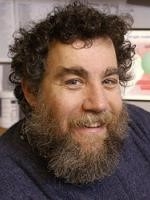In this interview, David Zierler, Oral Historian for AIP, interviews Steven Block, W. Ascherman Professor of Sciences, Stanford University. Block describes his German-Jewish heritage on his mother’s side, and his father’s Eastern European Jewish heritage. He describes growing up the son of a physicist and the importance of skiing and music in his family and spending his early childhood in Italy while his father was a visiting scholar. Block describes the rest of his childhood in North Carolina, and then Illinois, where his father worked for Duke and Northwestern, respectively. He explains his unique interests in Chinese and oceanography and why this led him to the University of Washington in Seattle, and he describes his subsequent pursuit of physics and ultimately biophysics at Oxford University. Block discusses the formative relationship he built with Max Delbruck at Cold Spring Harbor Labs where he worked on phycomyces, and he explains his decision to go to Caltech for graduate school to work with Howard Berg. He describes his postgraduate interests in sensory transduction in e. coli as a postdoctoral researcher at Stanford, and he provides a history on the discovery of kinesin and why this was key for his research. Block explains his decision to join the Rowland Institute and he discusses its unique history and the freedom it allowed its researchers, and he describes the opportunity that allowed him to secure tenure at Princeton. He describes some of the difficulties in convincing his colleagues to consider biophysics as “real” physics and the considerations that led to him joining the faculty at Stanford. Block describes the difficulties he has experienced when his laboratory site was displaced, and how, in dark way, he was prepared for the pandemic lockdown before most of his colleagues. At the end of the interview, Block reflects on his contributions, he explains the central importance of statistical mechanics to biophysics, he explains how he has tried to emulate his mentors in the care and interest he has shown his own students, and he prognosticates on the future of single molecule biophysics.

